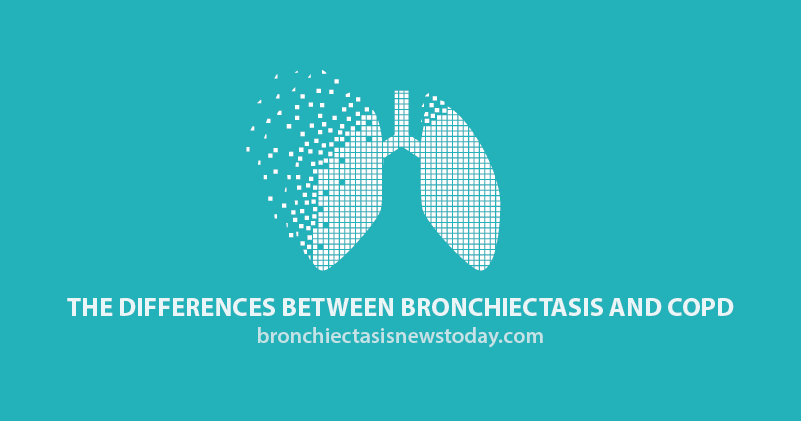
Chronic obstructive pulmonary disease (COPD) and bronchiectasis are two chronic lung conditions that often co-exist in patients. The two diseases share many similarities but there are some important differences between them.
Study review shows several associations between bronchiectasis and COPD.
COPD is actually a range of different lung diseases whereby patients find it difficult to exhale air from the lungs. Bronchiectasis is different in that the disease is characterized by the enlargement of the airways in the lungs called bronchi. Both diseases can lead to difficulty breathing, a chronic cough and an overproduction of mucus.
The two diseases are brought on by different causes: COPD tends to be the result of smoking and other environmental factors whereas bronchiectasis is usually due to an infection or complications following a lung transplant.
Although the two diseases share many symptoms, they need to be treated differently, and separately if a patient has both conditions. COPD can be treated with anti-inflammatory drugs, such as corticosteroid inhalers but bronchiectasis is treated with antibiotics to cure the infections. Find out more about the similarities and differences between bronchiectasis and COPD here.
Characteristics of bronchiectasis patients differ depending on the underlying cause. Find out more.
Bronchiectasis News Today is strictly a news and information website about the disease. It does not provide medical advice, diagnosis or treatment. This content is not intended to be a substitute for professional medical advice, diagnosis, or treatment. Always seek the advice of your physician or another qualified health provider with any questions you may have regarding a medical condition. Never disregard professional medical advice or delay in seeking it because of something you have read on this website.

I’d like to know how common this is with lupus. I’ve just been diagnosed with this; and doctors say it is related.
I find no or…very little information except to say that it is common with immunosuppressed patients
http://www.medicinenet.com/script/main/mobileart.asp?articlekey=116560#how_is_the_diagnosis_of_bronchiectasis_made
RA and lupus can go hand in hand and maybe this article will better help you?